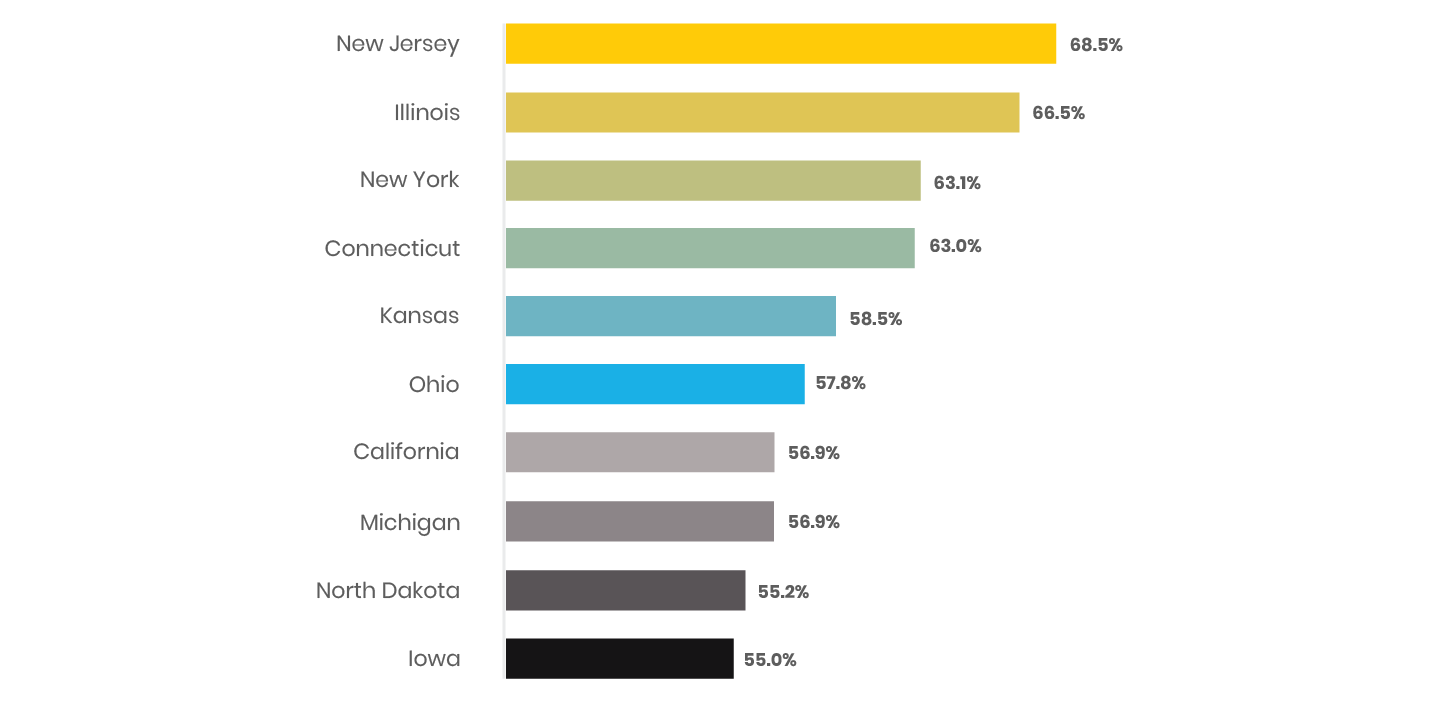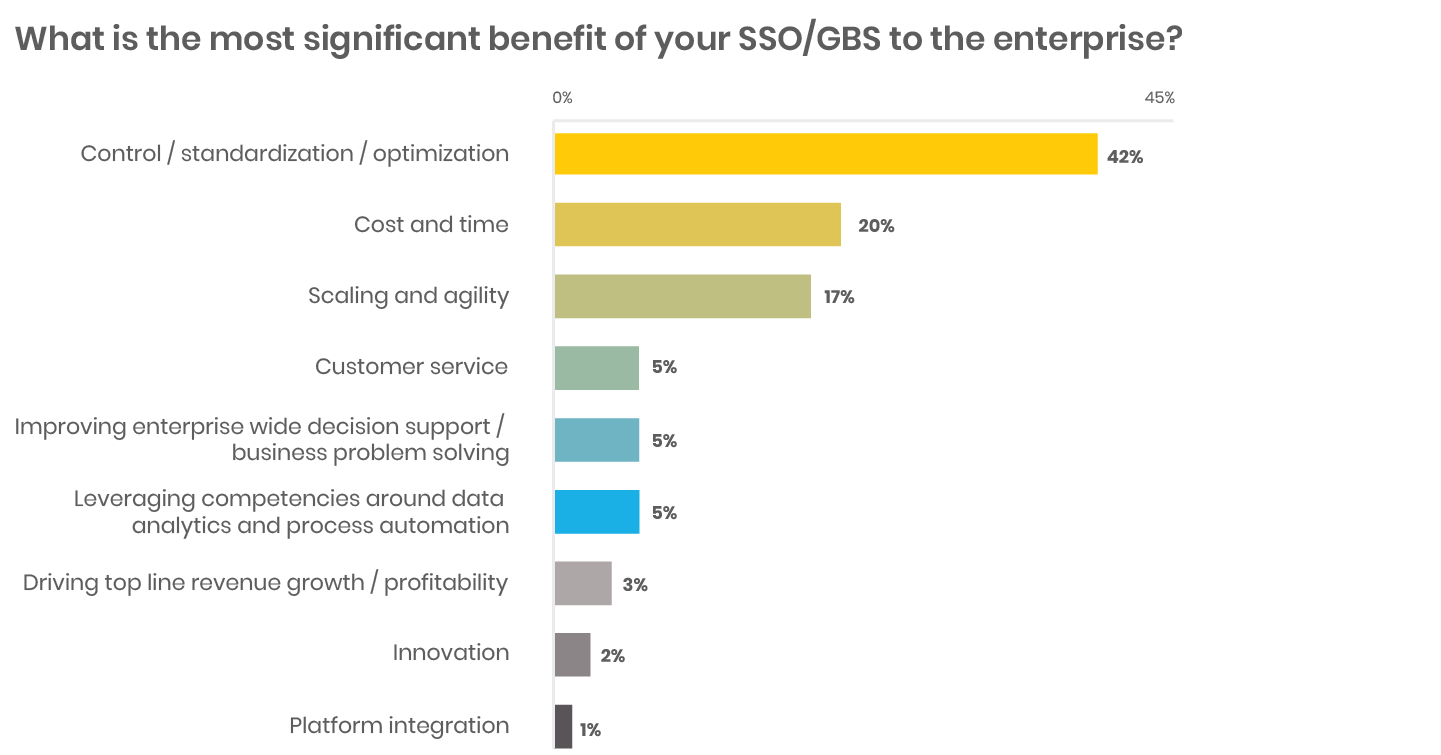The same way COVID has profoundly impacted the way we conduct business, it has also caused many executives in Corporate America to rethink their current Back Office & Shared Services Location Strategy.
As Forbes clearly explains in its recent article, there continues to be a steady exodus of businesses moving out of high-cost states like New York and California. “Now that working from home has taken its hold, the trend offers CEOs options. No longer do they have to pay for expensive real estate in New York City or San Francisco. They can have people working remotely or relocate jobs to less costly locations,” said Jack Kelly, Senior Contributor at Forbes.
According to the 2020 US Migration Trends Report issued every year by United Van Lines, the top 10 states people moved from last year were:

These percentages are based on total moves for that state. For example, 68.45% of moves in New Jersey were outbound, so 31.5% were inbound to total 100%.
Reasons for moving go beyond business-related drivers. However, “new job opportunity or company transfer” (47.98%) was cited as the top reason across the country, followed by “being closer to family” (23.66%), “retirement” (20.15%), and “lifestyle change” (13.08%).
Job migration trends are not only happening internally in the US but also across the Americas (and in some cases across the world). While Goldman Sachs, for instance, is eyeing a move from New York to Florida for one of its key divisions, other organizations are looking into nearshoring to countries like Costa Rica, Mexico, and Colombia to support portions of their North American operations while still maintaining the same time zone.
Costa Rica alone reached a record number of foreign investment initiatives in 2020. The Costa Rican Investment Promotion Agency (CINDE) reported a record of 81 confirmed projects during 2020, including a combination of brand-new multinationals going to the country as well as expansion and diversification of current operations.
The more than 330 multinationals located in Costa Rica generated a total of 134,026 jobs, (a 12% increase over 2019). Some examples of multinationals that expanded their Shared Services Operations in the country in 2020 included Intel, AutoDesk, Bacardi, British American Tobacco, Equifax and SmileDirectClub.
Other leading organizations are opting to leverage the benefits of nearshoring through local BPO and ITO providers like Auxis instead of opening their own offices in Latin America. Examples of companies that have chosen an outsourced model from Costa Rica for certain areas of their Finance, Back Office and IT operations include a $2B Global Retailer, a $3B Cosmetics Manufacturer & Distributor, and a Global Aviation Leader.
On average, US organizations outsourcing to countries like Costa Rica are achieving labor savings of 30% to 50%, in addition to the savings they can get from the productivity efficiencies and automation efforts led by their outsourcer.
Auxis’ most recent Outsourcing Savings Report provides interesting insights of the level of savings that companies can expect from moving the most common Finance and IT positions typically outsourced to a nearshore or offshore location. Auxis will be releasing an updated Outsourcing Savings Report in Q1 of 2021.
In addition to cost optimization, C-level executives are increasing their use of Shared Services & Outsourcing as a vehicle to improve operational flexibility, resiliency, and strategic focus. According to the 2021 State of the Shared Services & Outsourcing Industry – Global Market Report by SSON, the most significant benefits of Shared Services & GBS (Global Business Services) to the enterprise are process controls and standardization (twice as important as cost).

Source: 2021 State of the Shared Services & Outsourcing Industry – Global Market Report by SSON
In many organizations, the pandemic has hit their Shared Services operations at a more mature stage of evolution. Much of the low-hanging fruit has been harvested and many of the early opportunities are now table stakes. The pandemic has highlighted the absolute need for resilient operations rather than relying on rollover sites, as was typical in most business continuity programs (BCP).
Now is the perfect time for C-level executives to re-evaluate their current operating models and confirm if their old strategies still make financial and business sense in a post-pandemic era. This analysis should consider not just location strategy but the overall organizational structure, opportunities for centralization and restructuring, process standardization, and automation.
The analysis should also consider opportunities for expansion. According to the SSON report, nearly 80% of Shared Services confirmed that they plan to expand in terms of geographic reach and/or scope of services in 2021. The top three areas for expansion are HR, Data Analytics, and Finance & Accounting.
To schedule a consultation with our experts to assess your current shared services strategy, click here.

